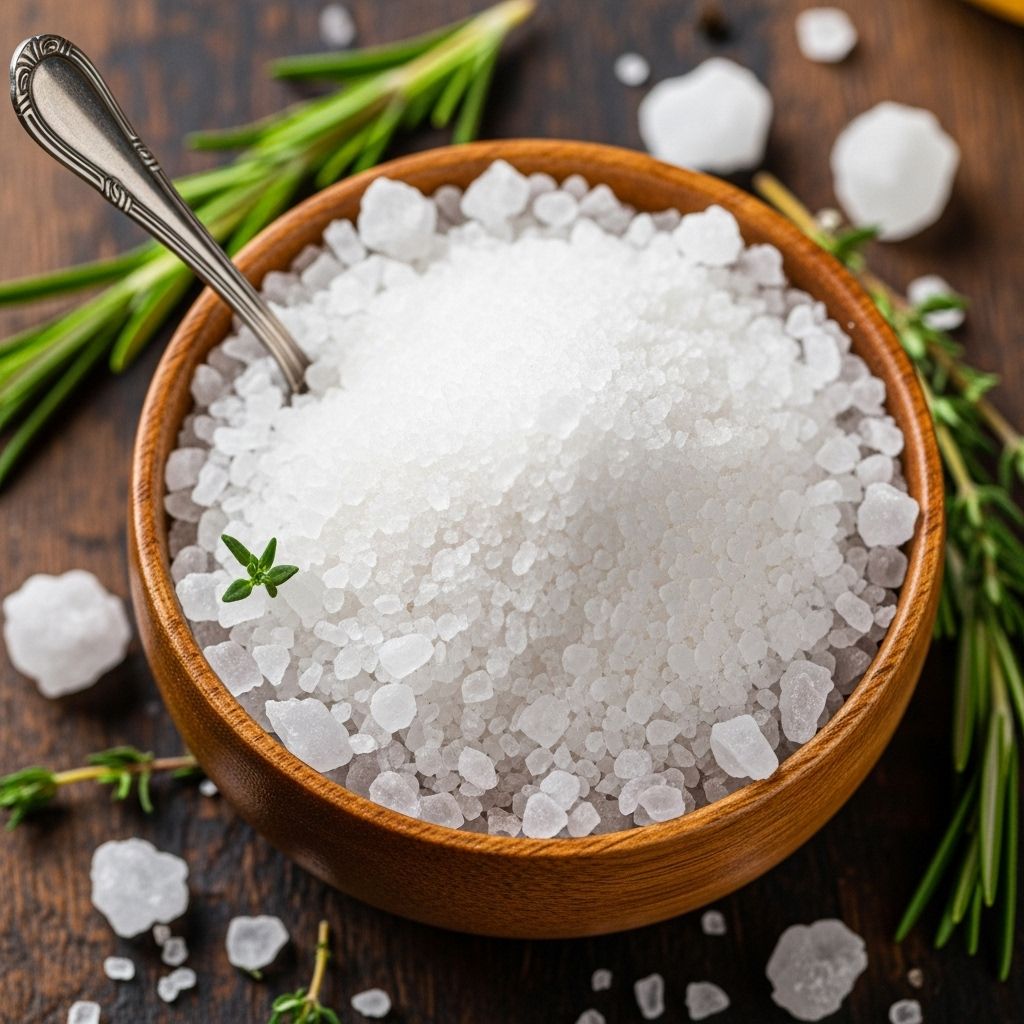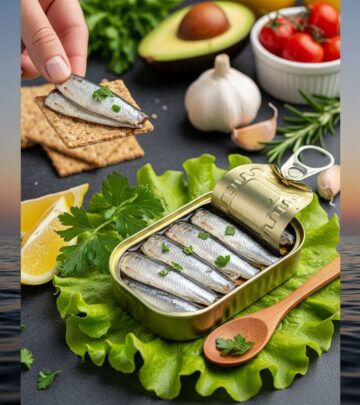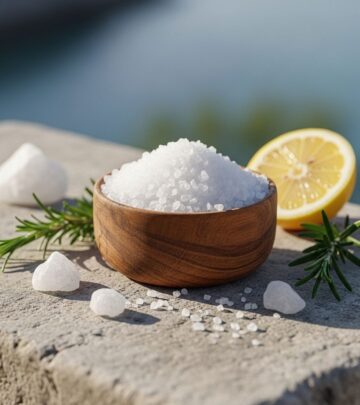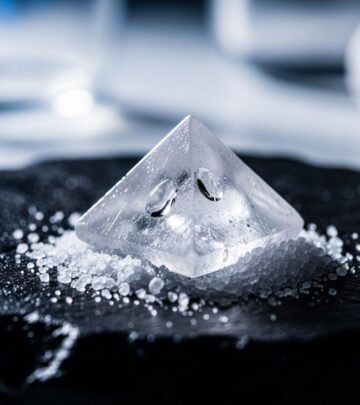What Is Kosher Salt? Benefits, Uses, and Taste in Modern Cooking
See how the purity and shape of each crystal brings subtle depth to every recipe.

Kosher salt has established itself as an essential ingredient among professional chefs and home cooks. With its pure flavor, coarse texture, and ability to elevate dishes, kosher salt is more than just a kitchen staple1 it is a culinary tool that shapes the taste, texture, and experience of food. This comprehensive guide explores everything you need to know about kosher salt, from its history and benefits to its applications and how it compares with table and sea salt.
Table of Contents
- Introduction to Kosher Salt
- Origins and History
- Distinctive Characteristics of Kosher Salt
- How Is Kosher Salt Made?
- Benefits of Kosher Salt
- Culinary Uses of Kosher Salt
- Taste and Texture Profile
- Kosher Salt vs. Table Salt vs. Sea Salt
- Health Considerations
- Measuring and Substitution Tips
- Frequently Asked Questions
- Conclusion
Introduction to Kosher Salt
Kosher salt, sometimes called kitchen salt, is a coarse-grained salt valued for its purity, lack of additives, and superior seasoning ability. It is composed of pure sodium chloride and is notably free from iodine and other chemical additives found in many other salts. The name ‘kosher salt’ is derived from its historic use in the Jewish koshering process, specifically in the preparation and purification of meat ().
Origins and History
Kosher salt originated as part of Jewish dietary law, which requires that blood be removed from meat before it is consumed. The large crystal size of this salt made it ideal for drawing out blood from meats, a process referred to as ‘koshering.’ Over time, its practical qualities and culinary advantages secured its place in the modern kitchen beyond religious use ().
Distinctive Characteristics of Kosher Salt
- Coarse, Flaky Texture: Kosher salt is distinguished by its coarse, irregular grains, which are larger and less dense than both table salt and most sea salts.
- Pure Sodium Chloride: Unlike table salt, kosher salt is free from iodine and anti-caking agents, delivering a clean, unadulterated saltiness ().
- Easy to Handle and Sprinkle: The size and structure of its flakes make it easy to grab, pinch, and distribute evenly, allowing for precise seasoning during every stage of the cooking process ().
The texture of kosher salt makes it favored for both seasoning and finishing dishes, as it dissolves quickly yet imparts a pleasing crunch when left whole.
How Is Kosher Salt Made?
Most kosher salt is produced by mining ancient underground salt deposits rather than by evaporating seawater. Water is injected into salt mines to create a brine, which is then extracted and evaporated. The slow heating and repeated agitation during this process causes the salt crystals to form hollow, irregular, large flakes1 the signature structure of kosher salt (). As there are no added chemicals or iodine, this process preserves the salt’s natural ability to absorb moisture.
Benefits of Kosher Salt
- Precise Seasoning: Kosher salt’s large grains allow cooks to control exactly how much salt is added, reducing the risk of over-salting compared to fine-grained table salt ().
- Superior Absorption for Meat: Because of its natural moisture-absorbing properties and absence of chemical additives, kosher salt is ideal for drawing blood and moisture from meats in brining and marination, improving texture ().
- Purer Flavor: Without any chemical aftertaste, kosher salt enhances food flavors cleanly and naturally.
- Quick Dissolving: Its hollow flakes dissolve faster on the tongue and in dishes compared to coarser sea salts, imparting a softer, more even salinity ().
- Versatility: It can be used for seasoning during cooking, finishing dishes, creating flavored salts, fermenting, and even baking.
Culinary Uses of Kosher Salt
The unique properties of kosher salt make it a versatile ingredient in various culinary processes. Here are its most common uses:
- General Seasoning: Its large grains are easy to pinch and distribute, offering better control for seasoning vegetables, pasta water, sauces, and roasted meats ().
- Finishing Salt: Adds a delicate crunch and burst of flavor when sprinkled on top of dishes just before serving.
- Meat Koshering and Brining: Essential for the traditional kosher preparation of meat and beloved in modern brining recipes because it draws out moisture and helps develop flavor.
- Fermentation: Kosher salt dissolves quickly and contains no additives that could inhibit fermentation, making it perfect for pickling and fermenting vegetables ().
- Flavored Salt Blends: Its coarse texture mixes excellently with herbs, spices, and citrus, perfect for rubs and finishing salt combinations.
Table: Common Uses of Kosher Salt in Cooking
| Use Case | Description |
|---|---|
| Seasoning during Cooking | Easy to pinch and distribute, excellent for sauteing and boiling |
| Brining | Draws out moisture in meat, aids in flavor and tenderness |
| Finishing Touch | Crispy texture for salads, grilled meats, and roasted vegetables |
| Baking | Some recipes call for kosher salt for its clean flavor and texture |
| Fermenting | Free from additives, ideal for creating brines during pickling |
Taste and Texture Profile
Kosher salt offers a mild, clean saltiness that enhances rather than overpowers food. Thanks to its coarse and irregular, generally flake-like crystals, it delivers a delicate crunch in finishing applications and dissolves quickly for smooth seasoning. It is noted for lacking the slight chemical aftertaste that iodized table salt sometimes imparts ().
Because it is pure sodium chloride, its basic salt flavor is similar to other non-iodized salts, though its impact feels softer and more nuanced due to the shape and solubility of its crystals. Many chefs also cite its ability to distribute more evenly and dissolve faster on the tongue as a key flavor advantage ().
Kosher Salt vs. Table Salt vs. Sea Salt
Understanding how kosher salt compares to other common salts helps clarify why it is so widely preferred in cooking.
| Attribute | Kosher Salt | Table Salt | Sea Salt |
|---|---|---|---|
| Grain Size | Large, coarse flakes | Fine, uniform granules | Varies (fine to flaky) |
| Additives | Usually none | Iodine, anti-caking agents | Usually minimal |
| Origin | Land-mined salt deposits | Land-mined or evaporated | Evaporated seawater |
| Taste | Mild, pure, quick-dissolving | Clean, can have chemical aftertaste | Clean, sometimes mineral notes |
| Culinary Uses | Cooking, finishing, brining | Tabletop seasoning, baking | Finishing, cooking |
Because kosher salt flakes are larger, a teaspoon of kosher salt contains less sodium than a teaspoon of table salt when measured by volume. For example, kosher salt can have about 53% less sodium per teaspoon when compared to table salt due to its lower density ().
Health Considerations
All dietary salts are mainly sodium chloride, so from a nutritional perspective, kosher salt, table salt, and sea salt are quite similar in sodium content by weight. However, because kosher salt’s flakes are larger, you may consume less sodium if measuring by volume. Kosher salt does not contain iodine, an essential nutrient sometimes deficient in some diets, especially where iodized table salt is the main iodine source ().
For individuals with hypertension or those managing sodium intake, portion control and mindful seasoning remain crucial regardless of the type of salt used. Kosher salt’s texture may make it easier to use less because the flakes are easier to sprinkle judiciously.
Measuring and Substitution Tips
- Because of its lower density, do not substitute kosher salt and table salt 1:1 by volume in recipes. For instance, if a recipe calls for 1 teaspoon of table salt, you may need about 1.52 teaspoons of kosher salt instead ().
- Always taste and adjust, especially when switching salt types, to avoid over- or under-seasoning.
- Different kosher salt brands (notably Diamond Crystal and Morton) vary in flake size and density, impacting measurements further. Where precise taste is important, weigh the salt or check conversion charts associated with your chosen brand.
Frequently Asked Questions (FAQs)
Q: Is kosher salt actually ‘kosher’?
A: The term refers to its use in the Jewish koshering process for preparing meats, but not all kosher salt sold is formally certified kosher. Check packaging for certification if it matters for your dietary needs ().
Q: Can I use kosher salt for baking?
A: Yes, though be mindful of volume conversions as its flake size makes it less dense than table salt. Some bakers prefer it for the cleaner flavor.
Q: Why do chefs favor kosher salt?
A: The coarse texture, ease of handling, pure flavor, and absence of additives make it easier to season food precisely and evenly ().
Q: Does kosher salt taste ‘less salty’?
A: It may taste less strong due to larger flakes spreading more evenly and less sodium per teaspoon compared to table salt, but by weight the saltiness is similar ().
Q: How should I store kosher salt?
A: Store it in a dry, tightly sealed container to prevent clumping and retain its texture.
Conclusion
Kosher salt’s unrivaled purity, convenient texture, and mild flavor profile make it a staple valued by chefs and home cooks around the world. Whether used for seasoning, curing, or finishing, its ability to enhance food’s natural flavors—without overpowering them—cements its role as a fundamental component of culinary craft. By understanding how and when to use kosher salt, you can achieve greater control, more balanced seasoning, and a heightened dining experience.
References:
The Ultimate Guide to Kosher Salt – Sous Chef
What is Kosher Salt: Benefits & Features – Mayi Salt
Kosher Salt: What It Is, Vs. Other Types of Salt – Healthline
Why Do Some Chefs Prefer Kosher Salt? – Sea Salt Superstore
Kosher salt – Wikipedia
References
- https://www.souschef.co.uk/blogs/the-bureau-of-taste/the-ultimate-guide-to-kosher-salt
- https://mayisalt.co/blogs/blog/what-is-kosher-salt
- https://www.healthline.com/nutrition/different-types-of-salt
- https://www.seasaltsuperstore.com/blogs/what-is-salt/why-do-some-chefs-prefer-kosher-salt
- https://en.wikipedia.org/wiki/Kosher_salt
- https://www.thesaltbox.com.au/news/what-is-kosher-salt-is-it-the-same-as-normal-sea-salt-or-table-salt/
Read full bio of Sneha Tete











